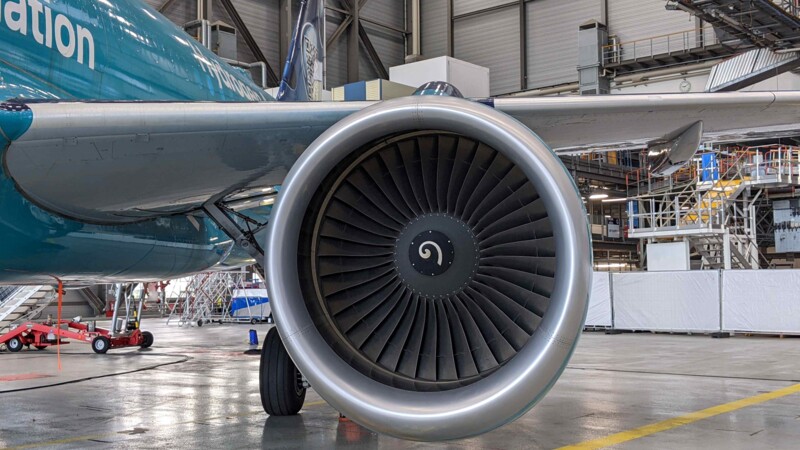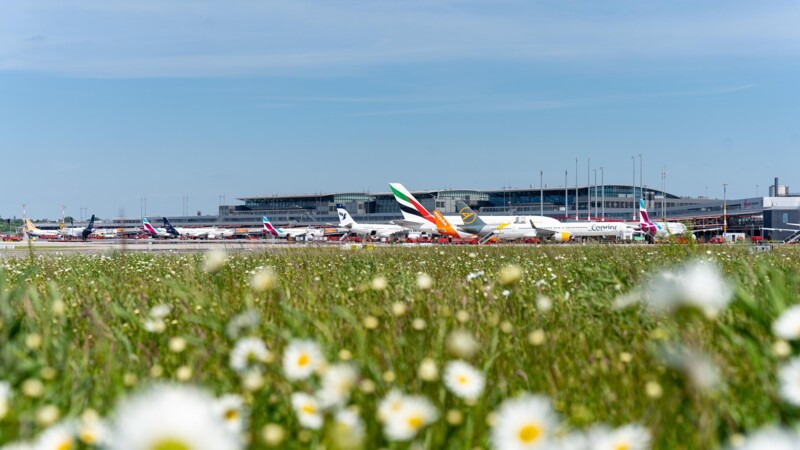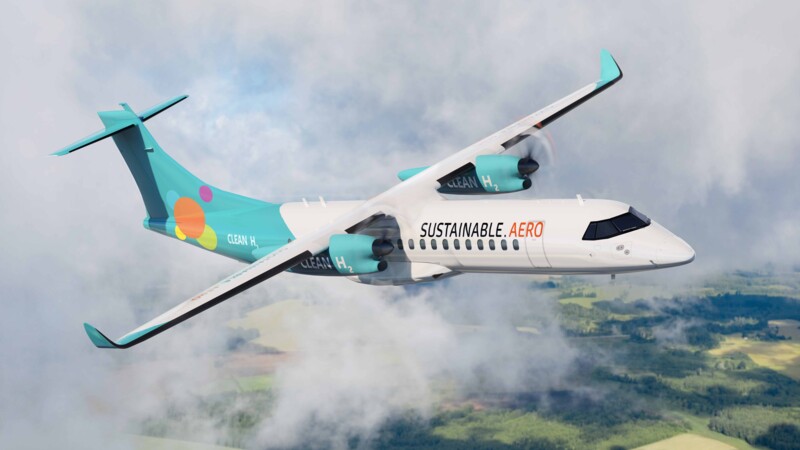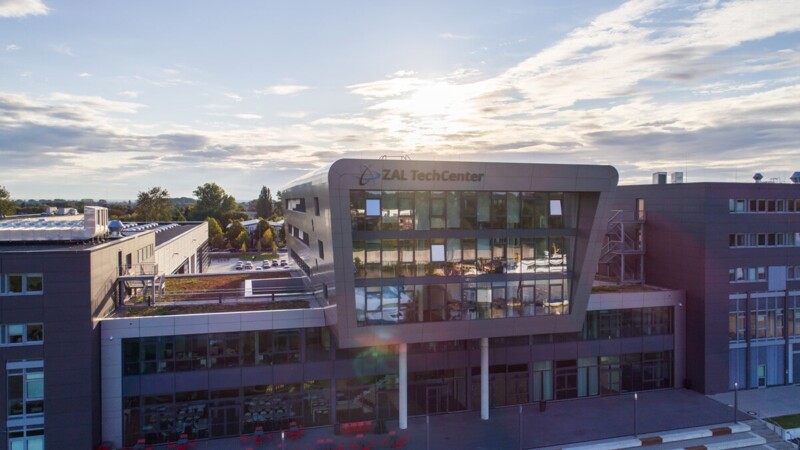“There was definitely a need for more space, as the original 26,000 square metres were quickly rented out after the opening in 2016,” said Roland Gerhards, CEO of ZAL GmbH. "Given an occupancy rate of 99.8 per cent, we had to keep turning away potential partners, which was unpleasant." The decision on the expansion gained a solid financial basis when Airbus, a founding partner, extended its lease to 20 years. Airbus, Lufthansa Technik, Diehl Aviation and Dassault Systèmes are among ZAL's key industrial partners which now has 34,000 square metres of space. The two German Aerospace Centre (DLR) institutes "Maintenance and Modification" and "System Architectures in Aviation" now occupy around two-thirds of the space. "When designing the extension, we took into account the needs of SMEs and start-ups," Gerhards stressed. The concept of "flex space“ means that project-related areas can be rented at short notice and for briefer periods of time.
More than 30 representatives of robotics, automation, cabin acoustics, smart cabin design and solutions for climate-friendlier aviation attended the opening of the expanded Center of Applied Aeronautical Research (ZAL) on Wednesday (July 10,2024). "The 30 per cent expansion of ZAL adds more capacity for innovations 'Made in Hamburg' and boost the German Aerospace Centre based here," said Dr Peter Tschentscher, Mayor of Hamburg, during the opening of the 8,000 square metre extension in Finkenwerder.
Aerospace now occupies two-thirds of new space

Considering all mobility concepts in aviation research
Thanks to a desk-sharing concept, up to 300 DLR employees can now conduct research into sustainable aircraft, operational concepts as well as digital assistance systems for maintenance and inspection robots in the ZAL annex. Hamburg offers DLR an "ideal research environment," said Professor Anke Kaysser-Pyzalla, Chair of the DLR Executive Board. "We don't want to research backwards-flying May bugs, but topics that yield concrete benefits. And Hamburg, with its airport, port, rail transport and motorways offers us exactly the environment we need for our research questions."

"Hydrogen Aviation Lab"
The opening also featured some of the latest projects including robotic systems and manufacturing demonstrators. A virtual reality tour of a passenger aircraft showed how integrated hydrogen systems work. DLR, ZAL, Lufthansa Technik and Hamburg Airport have been researching liquid hydrogen as an environment-friendly alternative to paraffin in the Hydrogen Aviation Lab (HAL) since 2022. To this end, an Airbus A320 has been converted into a real-life laboratory for hydrogen propulsion in aviation. Emphasis is on integrating hydrogen into existing airport infrastructures, competitive refuelling times, avoiding overfilling and waste of hydrogen and safety precautions as hydrogen is highly flammable. A digital twin of the A320 has been created to enhance research into the various aspects of hydrogen in aviation. Sensors have been coupled with virtual reality technology to simulate real-life conditions with information on temperatures or the level of the hydrogen tank.
ZAL Award honours innovations in aviation
The first ever ZAL Award will honour innovations in aviation this year. Applications are being accepted until the deadline of September 27, 2024 and can focus on developing new aircraft or measures that improve the lives of passengers, crew and aircraft developers. Three criteria must be met. More information can be found on ZAL Award Participation Conditions. The winner can look forward to a trophy, and the prestigious designation “Winner ZAL.award”, a seal that can be used in marketing and public relations.
ys/pb
Sources and further information
More
Similar articles

Conference in Hamburg: Aviation does not have to a climate killer

Hamburg's green aviation funding now in second round

Sustainable Aero Lab driving sustainable aviation from Hamburg
